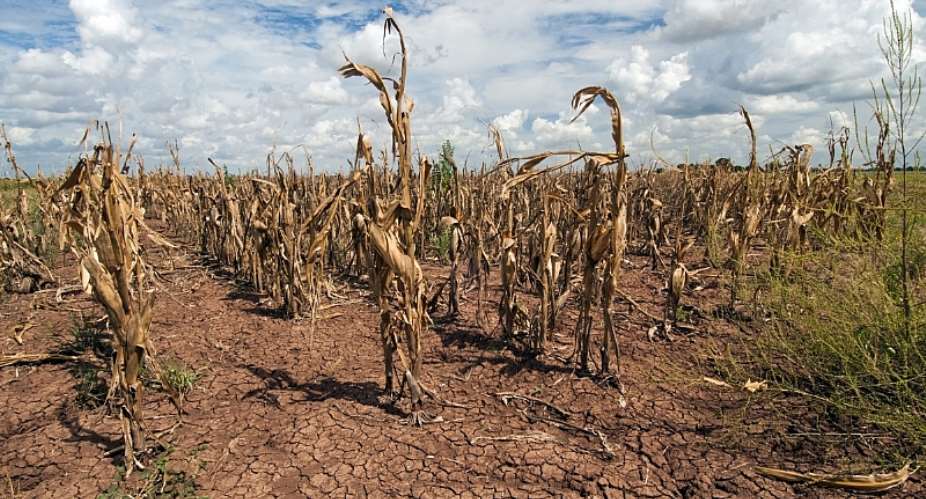The struggle against the harsh impacts of climate change on the most vulnerable people will receive a significant boost if social transformation analysis is included in policies and action plans.
Social transformation here is defined as the persistent changes that individuals, households and communities undergo in response to events. It is crucial to leverage positive social transformation opportunities for planning or interventions for building resilience against climate change.
Climate change manifests in extreme events such as drought, flood, rainfall variability and sea level rise. The shocks from these events affect human development by disrupting the livelihoods of the most vulnerable people. This is the case for livelihoods that are largely dependent on natural resources-based sectors such as agriculture, fishery and forestry which tend to have high climate risks. For instance, climate change leads to water shortages and low agricultural yields therefore threatening food and water security of vulnerable populations.
Vulnerability to climate change also depends on people’s capacity to adjust or adapt to the new reality it brings to their living conditions. Climate threats lead the most affected to find alternative means to minimize risks and maximize opportunities. Migration has risen as a common adaptation strategy to improve livelihoods. A World Bank Report reveals that internal climate migration will continue to rise with hotspots emerging as early as 2030.
What has received much policy attention is the fact that there are underlying non-climatic drivers that exacerbate climate vulnerabilities and push people towards responding to climate change with migration. These drivers could be rooted in socio-economic, technological, demographic, and political characteristics of the most vulnerable. For example, the decision to migrate out of a changing climate region, may depend on socio-economic characteristics such as age, gender responsibilities, level of education, income level, access to productive resources and social networks.
What is interesting about these socio-economic characteristics which exacerbate the effects of climate change is that they are persistently transforming. However, the reality and analysis of this social transformation have often been ignored in the planning and implementation of climate change policy interventions. Typically, decision makers will formulate climate actions based on changing climate variables such as temperature, rainfall, and sea level, while the changing nature, as well as the drivers of socio-economic characteristics or variables are not considered.
Through the funding support of the European Union under the Ghana Agriculture Programme, the International Water Management Institute (IWMI) is implementing the “Resilience Against Climate Change – Social Transformation Research and Policy Advocacy (REACH-STR) Project”. The project among other things is researching and engaging decision makers on pathways to incorporating social transformation analyses into planning of climate adaptation and mitigation interventions within the broader development context.
So far, the REACH-STR project has conceptualized social transformation and developed methods by which it can be included in development policy planning. The project plans to engage district-level development planners on how social transformation analyses may be included in their planning activities.
As part of the project’s activities, IWMI and the project partners, in collaboration with the International Organisation for Migration (IOM) and the Ghana Commission for United Nations Educational, Scientific and Cultural Organisation, has put together a panel of experts and high placed decision-makers from across the West African subregion to discuss the place of social transformation analyses in policy making on climate-induced migration which cuts across the Sahel.
The experts dialogue, which will be held on 29th September 2021, is expected to discuss how, where, and why climate is intersecting with social transformation factors to influence climate vulnerabilities and migration outcomes, and the implications of this interaction for migration policies and interventions in West Africa.
By Esther Wahabu,





 Saglemi Housing Project will not be left to rot – Kojo Oppong Nkrumah
Saglemi Housing Project will not be left to rot – Kojo Oppong Nkrumah
 Transport fares hike: GPRTU issue two-day ultimatum
Transport fares hike: GPRTU issue two-day ultimatum
 ARC endorses Alan as presidential candidate – Buaben Asamoa
ARC endorses Alan as presidential candidate – Buaben Asamoa
 Akufo-Addo appoints Kwasi Agyei as new Controller and Accountant-General
Akufo-Addo appoints Kwasi Agyei as new Controller and Accountant-General
 PNC dismiss reports of mass resignations
PNC dismiss reports of mass resignations
 PAC advocates for revenue collectors to be engaged on commission basis, not full...
PAC advocates for revenue collectors to be engaged on commission basis, not full...
 Genser Energy commissions 110km of natural gas pipeline at Anwomaso
Genser Energy commissions 110km of natural gas pipeline at Anwomaso
 Naa Torshie calls for tolerance, peace ahead of 2024 election
Naa Torshie calls for tolerance, peace ahead of 2024 election
 Asantehene commends Matthew Opoku Prempeh for conceiving GENSER Kumasi Pipeline ...
Asantehene commends Matthew Opoku Prempeh for conceiving GENSER Kumasi Pipeline ...
 Let’s do away with ‘slash and burn politics’ in Ghana — Dr Adutwum
Let’s do away with ‘slash and burn politics’ in Ghana — Dr Adutwum
